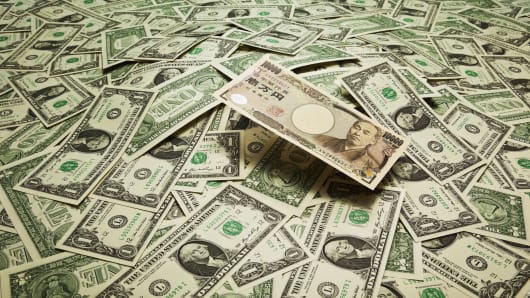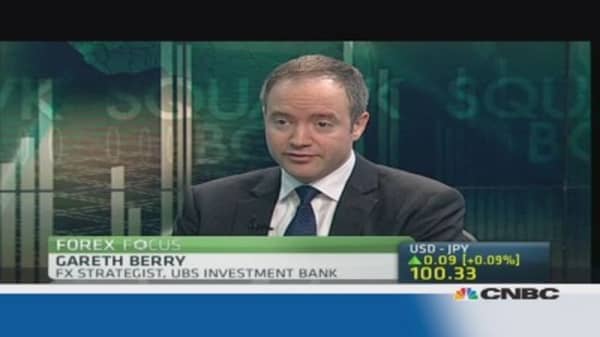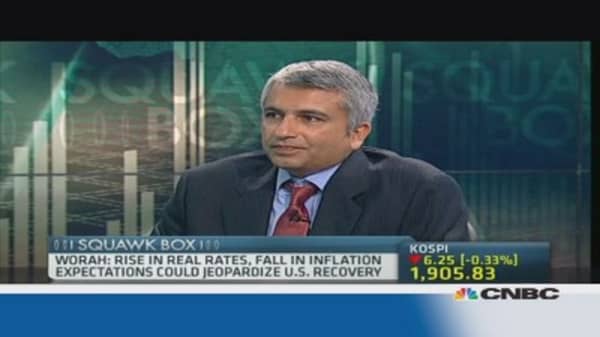Japanese investors snapped up foreign bonds for a third straight week last week and analysts say that the long-awaited trend may be finally under way, signaling the next leg lower for the yen.
Data released on Thursday showed Japanese investors bought a net 549.3 billion yen ($5.48 billion) of foreign bonds in the week to July 20. That followed net buying worth about 1.106 trillion yen in the previous week, the largest amount since September 2012.
"We are seeing more foreign bond buying out of Japan and there is a need for the Japanese to search for higher yields," said Emma Lawson, senior currency strategist at National Australia Bank.
(Read more: Here's when to get out of the Nikkei rally)
"We do think this will continue to happen, especially among the financial institutions and that will put more downward pressure on the yen," she added.






